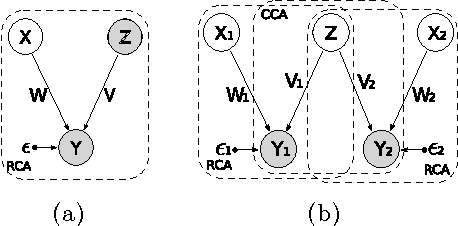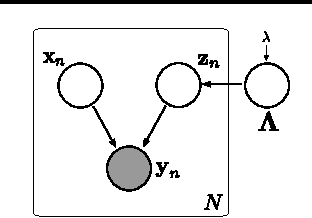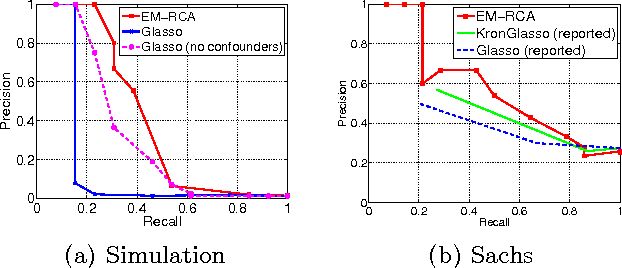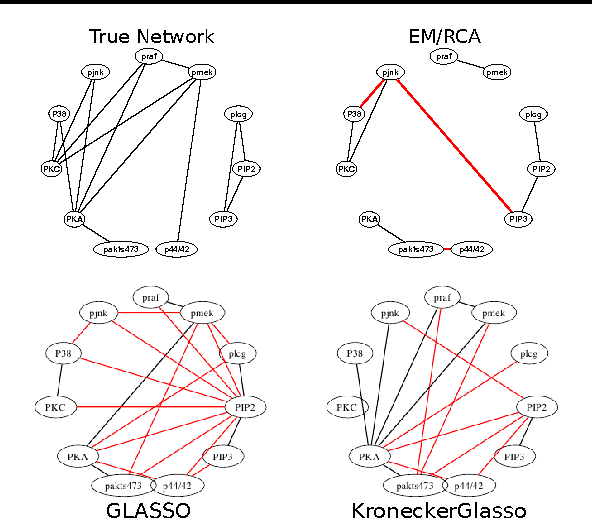Residual Component Analysis: Generalising PCA for more flexible inference in linear-Gaussian models
Paper and Code
Jun 18, 2012



Probabilistic principal component analysis (PPCA) seeks a low dimensional representation of a data set in the presence of independent spherical Gaussian noise. The maximum likelihood solution for the model is an eigenvalue problem on the sample covariance matrix. In this paper we consider the situation where the data variance is already partially explained by other actors, for example sparse conditional dependencies between the covariates, or temporal correlations leaving some residual variance. We decompose the residual variance into its components through a generalised eigenvalue problem, which we call residual component analysis (RCA). We explore a range of new algorithms that arise from the framework, including one that factorises the covariance of a Gaussian density into a low-rank and a sparse-inverse component. We illustrate the ideas on the recovery of a protein-signaling network, a gene expression time-series data set and the recovery of the human skeleton from motion capture 3-D cloud data.
 Add to Chrome
Add to Chrome Add to Firefox
Add to Firefox Add to Edge
Add to Edge